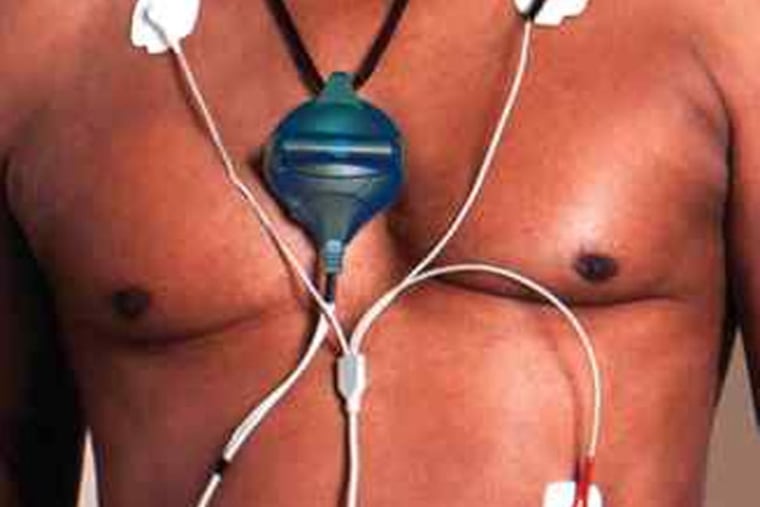Malvern medical device maker pays U.S. $45 million for work outsourced to India
Before it was bought by Royal Philips, BioTelemetry's CardioNet had testing done offshore by technicians who were "not qualified," Medicare and the Veterans' Health Administration said.

A Malvern medical-device maker has agreed to pay $44.88 million to settle accusations that it sent U.S. military members’ and veterans’ heart monitoring records to be analyzed in India, after falsely certifying that it wouldn’t let that information out of the United States.
Although U.S. law requires that this work be done in this country, tests at BioTelemetry’s CardioNet division were sent for review from 2013 to 2018 to 450 technicians in India, many of whom were not qualified to do the work, even if it had been legally exported, the U.S. Attorney’s office in Philadelphia said Tuesday.
Unidentified whistleblowers at CardioNet tipped off the government to CardioNet’s deception. The whistleblowers will be able to claim part of the civil settlement as compensation for taking the risk of reporting the company’s illegal practices, the prosecutor’s office said.
According to the company’s owner, Philips, a European equipment maker that bought the company in 2020 for $2.4 billion, “CardioNet and BioTelemetry deny the allegations, and the settlement agreement does not represent an admission of liability,” said Steve Klink, head of Philips’ global press office.
“Philips has agreed to the settlement agreement to resolve this legacy complaint,” he added, noting that the company had already set aside money for the settlement.
The investigation was conducted by special agents of the Department of Health and Human Services, the Defense Criminal Investigative Services, and the Justice Department, among other federal agencies.
By sending the work out of the country, rather than doing it in the United States, the two companies submitted false claims to Medicare, the U.S. military’s Tricare health insurance system, the Veterans Health Administration, and the Veterans Health Administration.
In 2015, most of the tests were conducted in India, according to the U.S. attorney’s office. Even when company officials that year tightened controls to keep the work from going to India, “those controls were insufficient,” and some of the work continued to go offshore.
As part of the settlement, BioTelemetry agreed to a five-year “corporate integrity agreement” with the DHHS inspector general, requiring risk assessment, internal process review, and identification of evolving compliance risks, as well as a third-party annual review of the company’s Medicare bills.
Remote heart monitoring needs to comply with federal law and be provided by qualified clinical staff, assistant Attorney General Brian M. Boynton said in a statement.
Jacqueline C. Romero, U.S. Attorney for the Eastern District of Pennsylvania, said her office would continue to pursue cases in which providers have failed to honor federal rules.
“Our agency is extremely committed to investigating providers” who don’t follow the rules, said Maureen R. Dixon, special agent in charge at the DHHS enforcement unit.